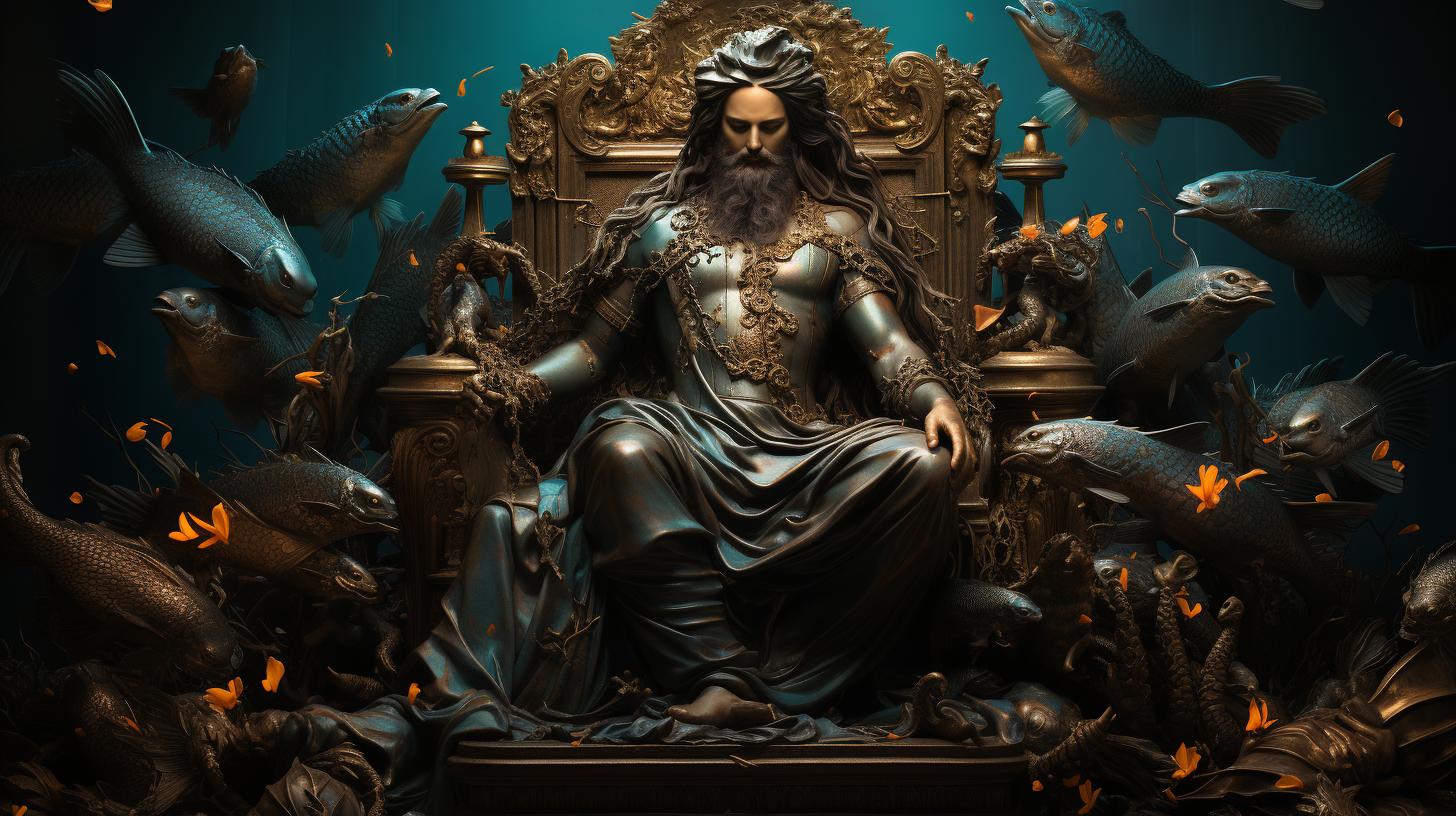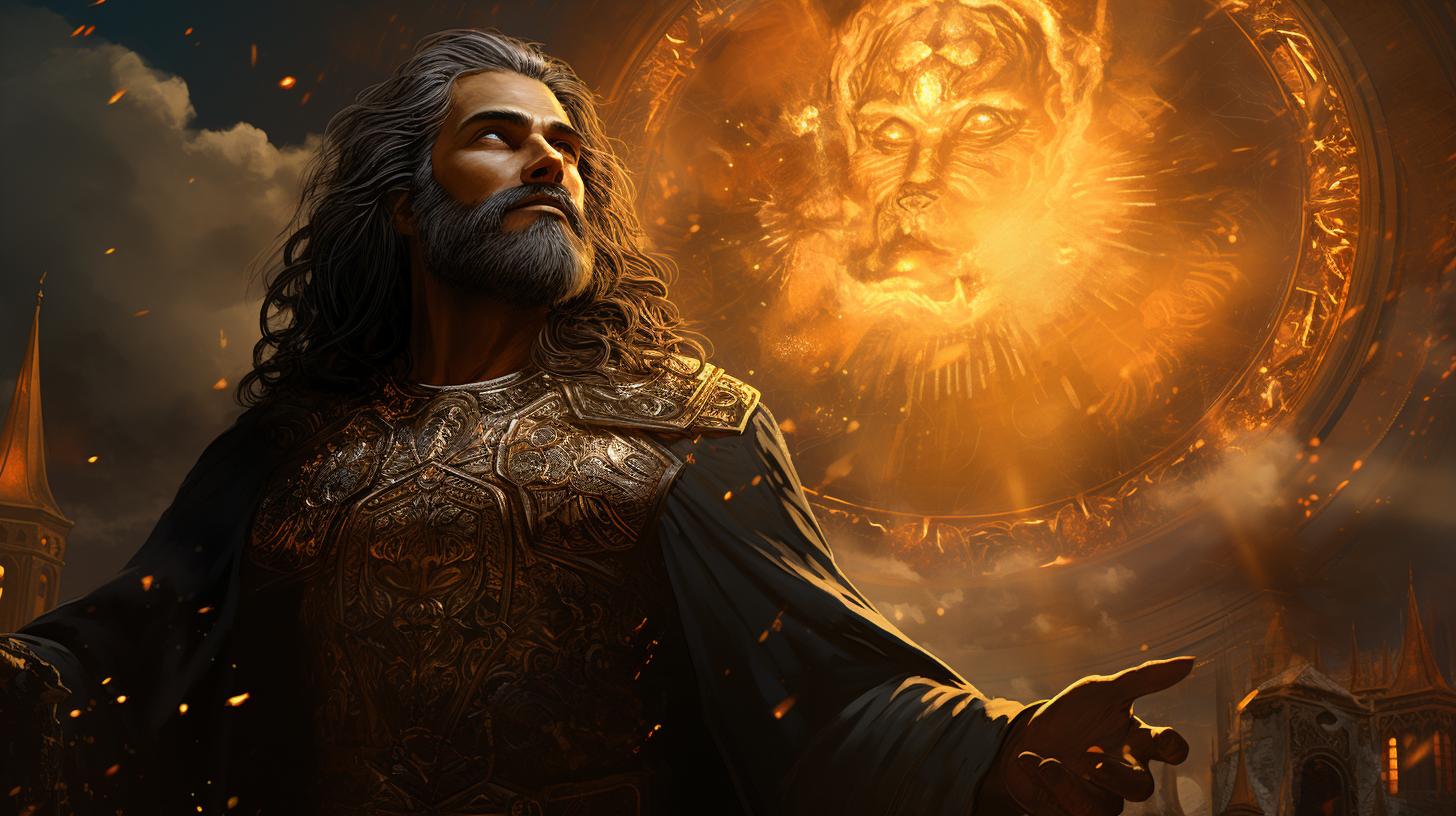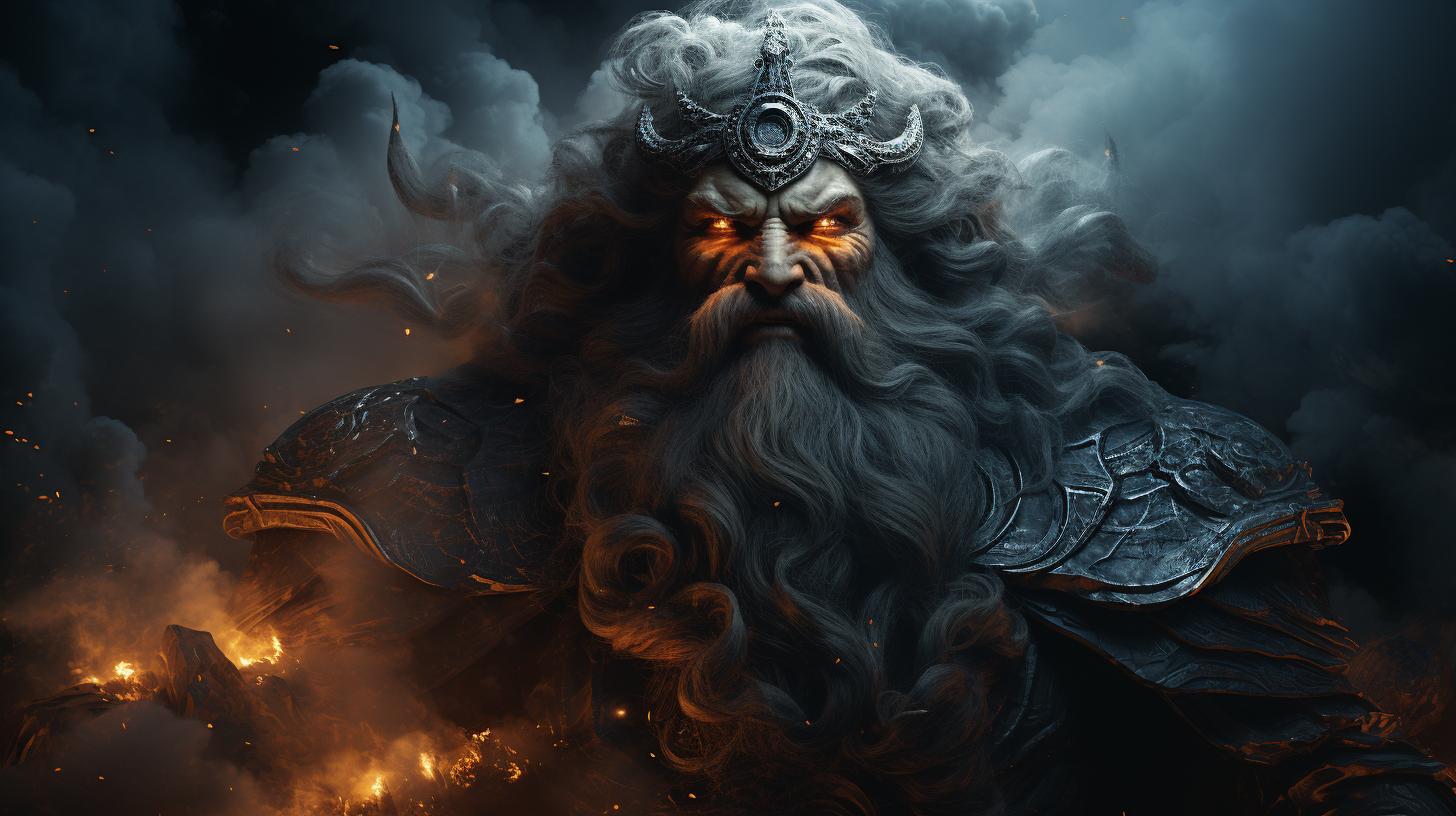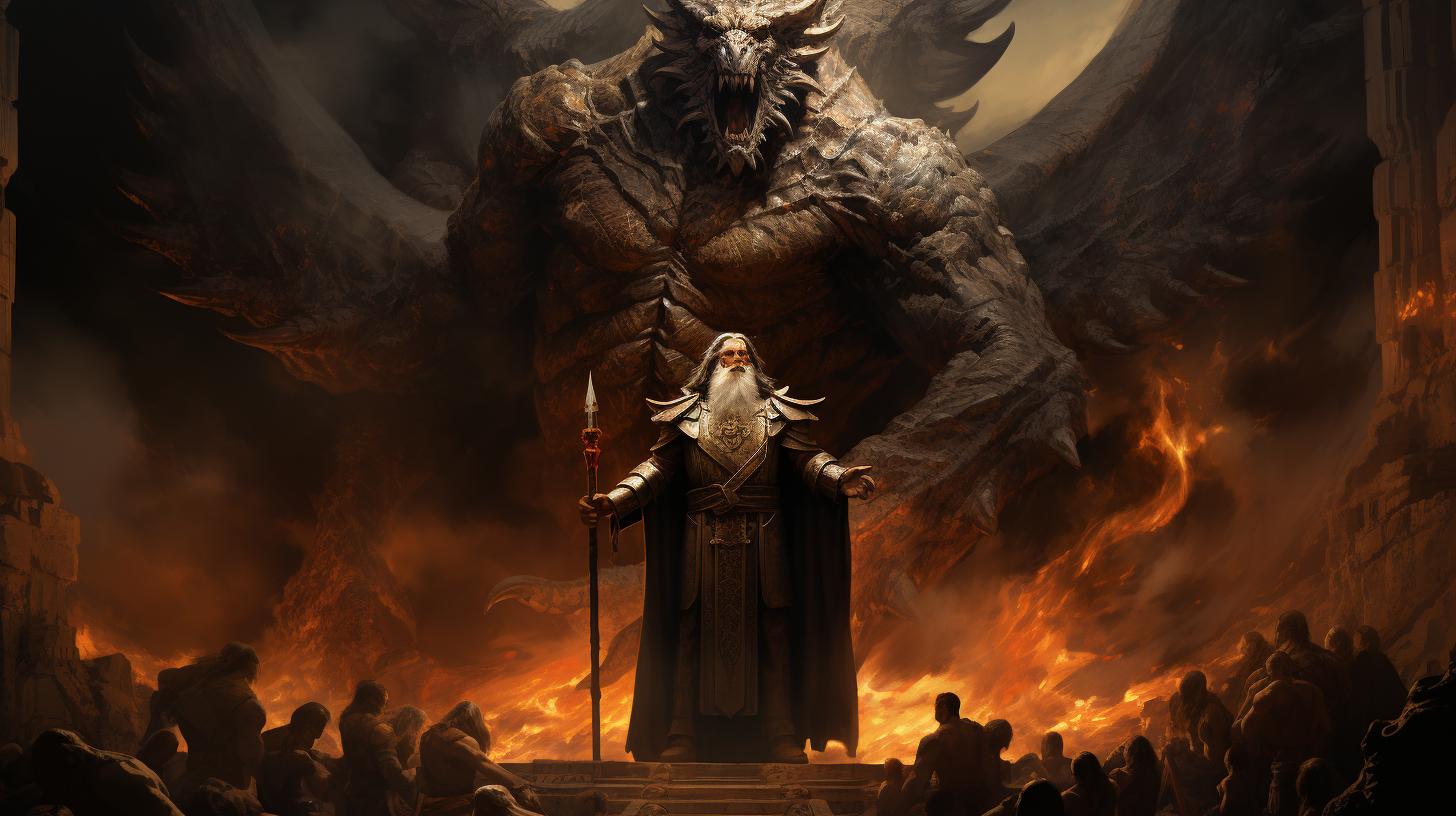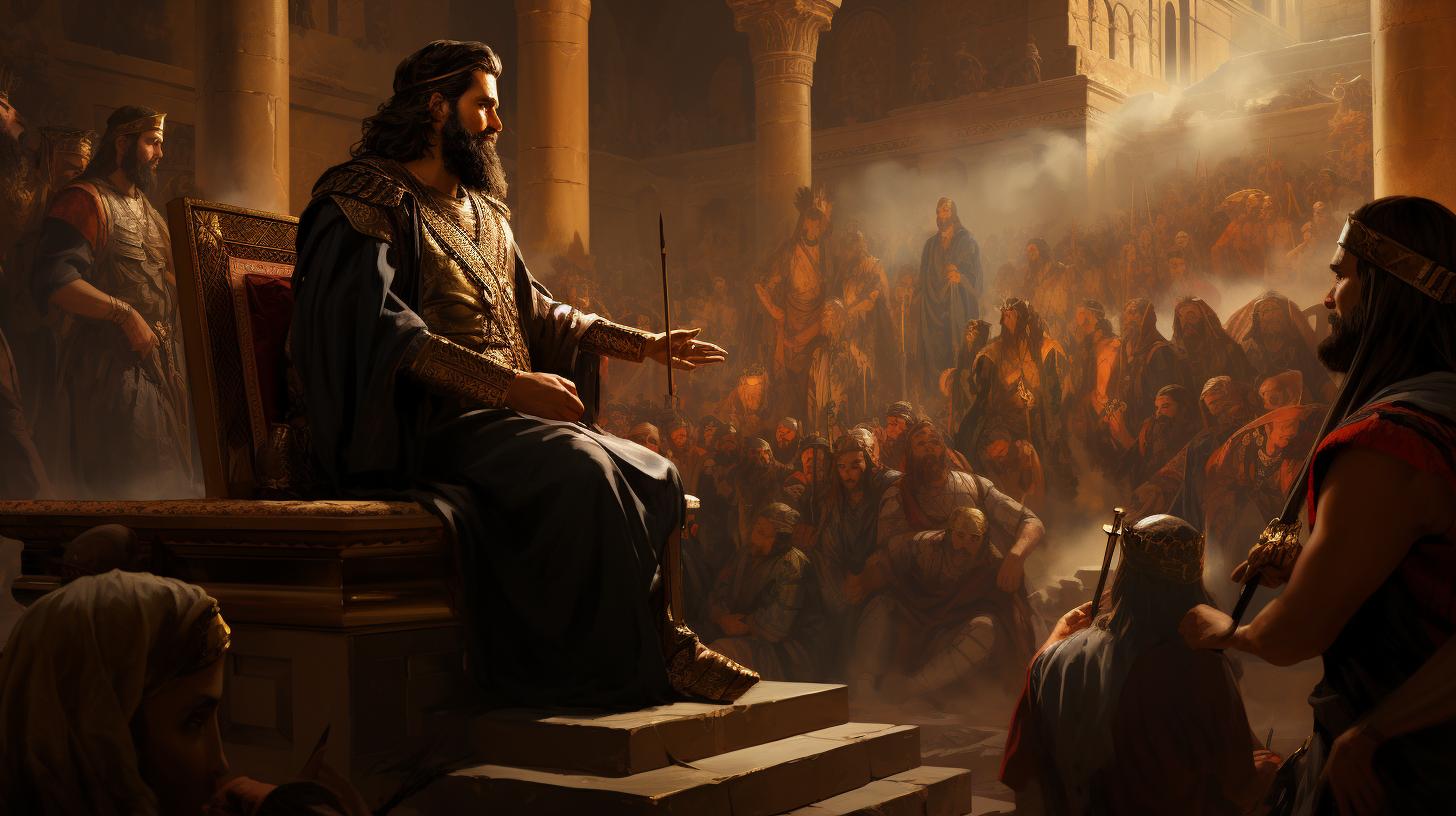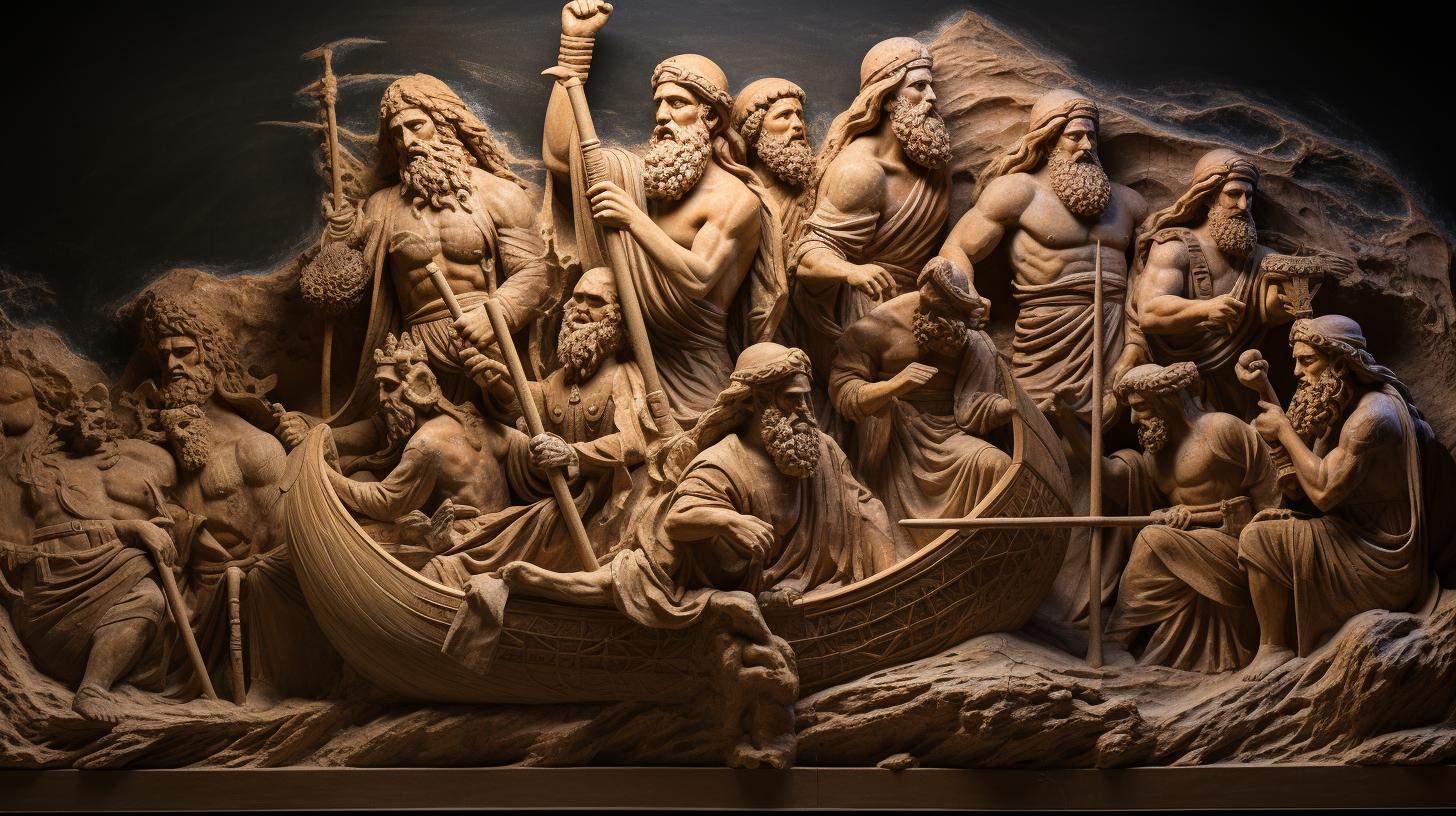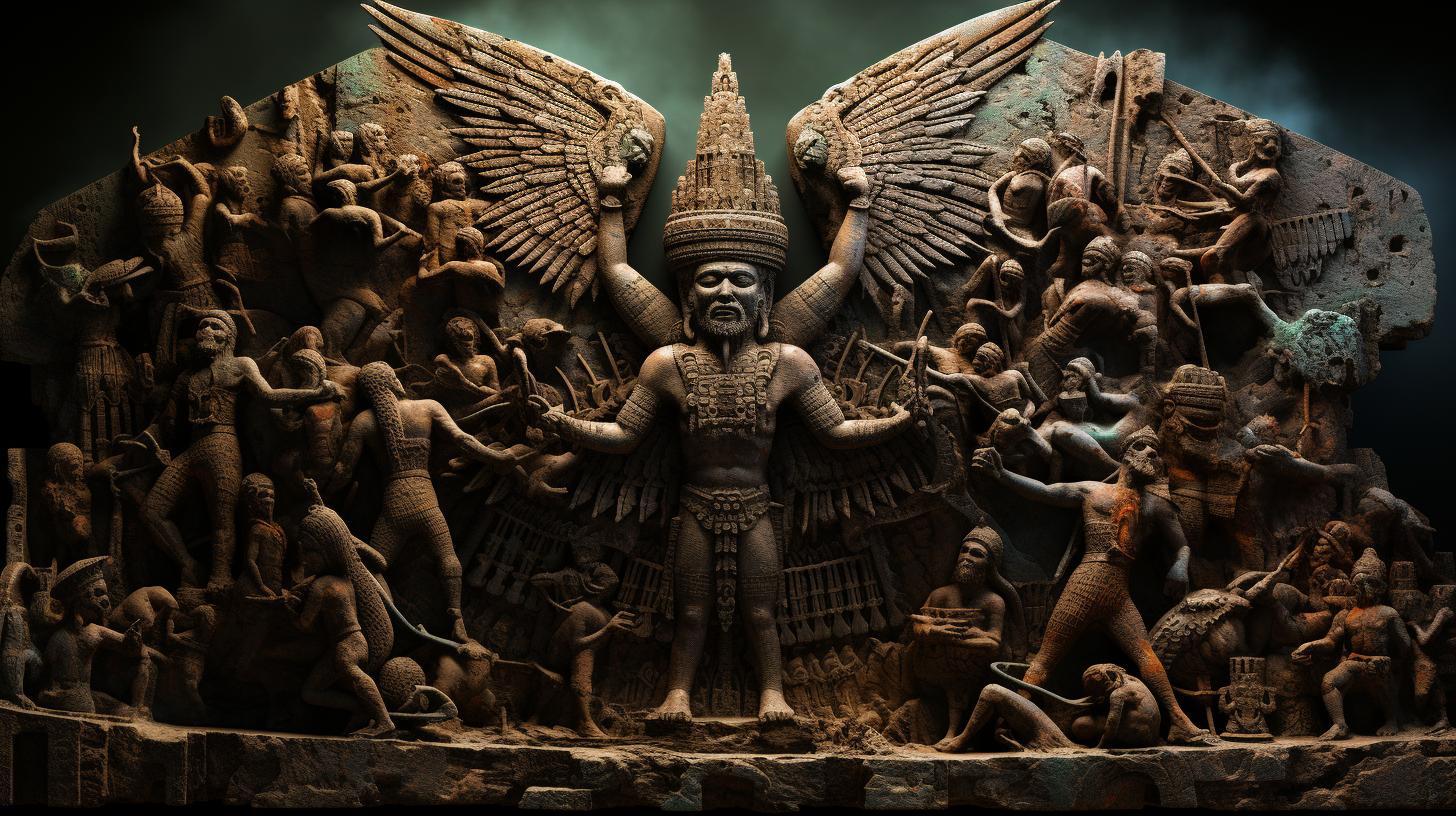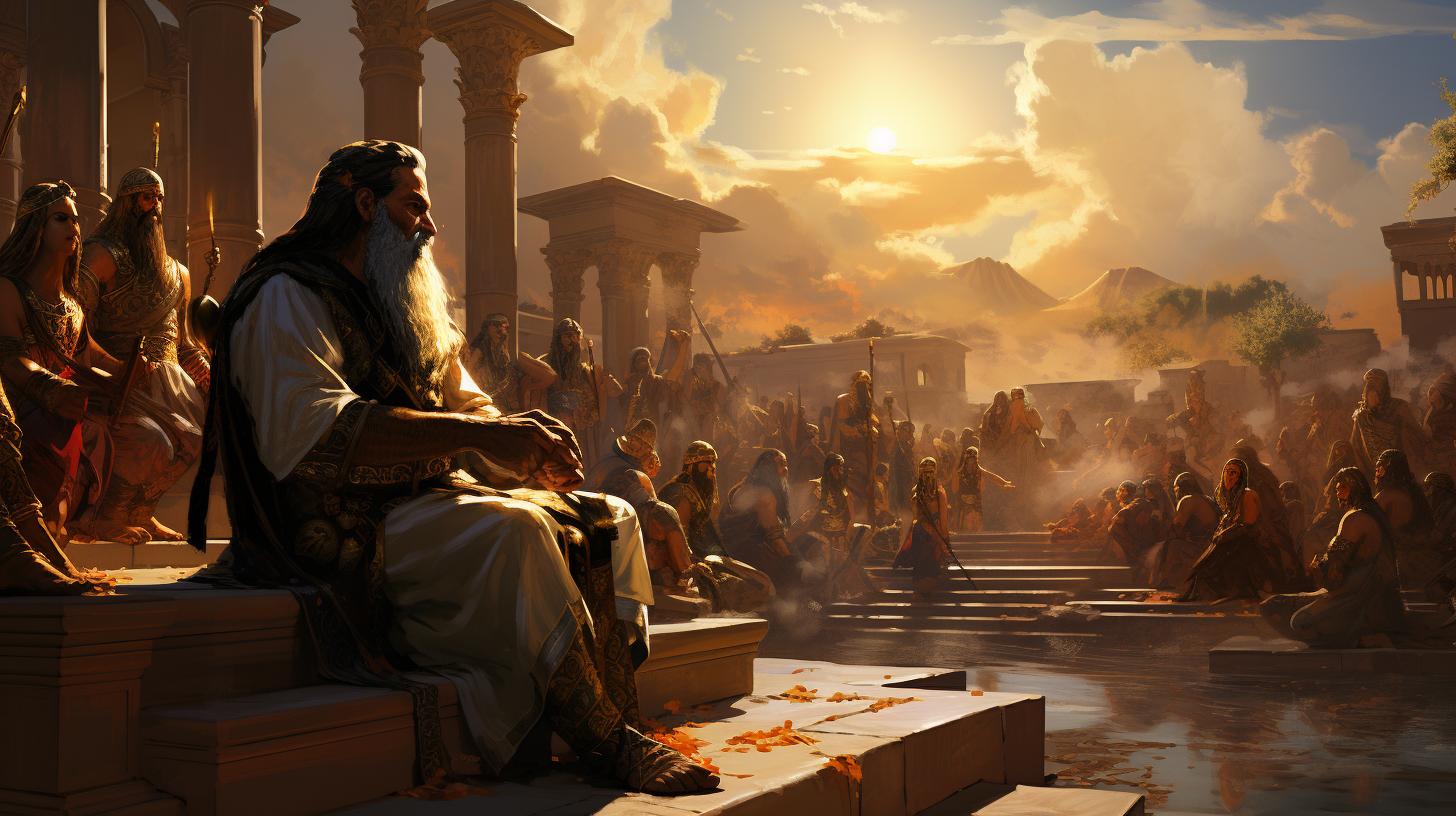Sumerian God Ea: Exploring the Mighty Deity in Mesopotamian Mythology

The Sumerian god Ea holds a significant place in Mesopotamian mythology. Known as the god of water and wisdom, Ea’s influence extended over the earth and mankind. Ancient Sumer worshiped Ea through dedicated temples and rituals, reflecting his importance in their culture.
As one of the prominent deities in the Sumerian pantheon, Ea shares a close association with Enki, another powerful god. Ea’s legacy endures in art, literature, and our modern understanding of the ancient Near East.
Explore the intriguing world of Sumerian mythology through the lens of the mighty god Ea.
The Origins of Sumerian God Ea
In the fascinating realm of href=”https://oldworldgods.com/mesopotamian/”>Mesopotamian mythology, the deity known as Ea holds a significant place. Ea, also called Enki, was revered as the god of water and wisdom.
His origins can be traced back to the ancient Sumerian civilization, which thrived in what is now modern-day Iraq. Ea’s prominence in the Sumerian pantheon and the myths and legends surrounding him shed light on the profound influence he had over the culture and beliefs of the ancient Mesopotamians.
Ea’s Role in Mesopotamian Mythology
Within the rich tapestry of Mesopotamian mythology, Ea played a crucial role as a supreme deity. He was considered the bringer of life, using his wisdom and power to contribute to the creation of the world and mankind.
Ea was seen as the ultimate benefactor, providing sustenance, knowledge, and guidance to humanity. His role as a protector and provider made him an object of veneration, with the ancient Sumerians attributing numerous qualities and abilities to this mighty deity.
Myths and Legends Surrounding Ea
The stories and legends revolving around Ea further emphasized his significance in Mesopotamian culture. One prominent myth highlights Ea’s involvement in the creation of humans. It is said that he helped shape the first humans using clay, imbuing them with his wisdom and divine essence.
Another tale tells of his crucial role in averting a great flood by warning a chosen hero and providing instructions to build an ark. These myths and legends showcase Ea’s status as a wise and powerful deity, revered and respected by the ancient Sumerians.
Ea’s Attributes and Powers
Ea, the Sumerian god, possessed incredible attributes and powers that made him a major figure in Mesopotamian mythology. Let’s delve into two significant aspects that define Ea’s essence: his association as the god of water and wisdom, and his profound influence over the earth and mankind.
Ea as the God of Water and Wisdom
Ea’s divine domain extended to the depths of water, making him the god closely associated with this vital element. He held sway over the sea, rivers, and all sources of water, symbolizing its life-giving properties and the cultivation it brought to Sumerian civilization.
Additionally, Ea was revered as the deity of wisdom and knowledge, representing intellectual prowess and deep understanding.
As the god of water, Ea was believed to possess the power to control flooding, droughts, and other natural phenomena related to water.
The ancient Sumerians sought his favor to ensure bountiful harvests and protection from water-related disasters. Ea’s wisdom, on the other hand, was sought for guidance in matters of law, morality, magic, and divination.
Ea’s Influence over the Earth and Mankind
Ea’s influence extended beyond the realms of water and wisdom, encompassing the earth itself and the lives of mankind. He was considered instrumental in the creation of the world, molding it into a habitable place for humanity.
Ea’s power allowed him to shape the land, establish order, and provide sustenance for all living creatures.
Furthermore, Ea played a crucial role in the development and well-being of human society.
He bestowed upon mankind various gifts, including the arts, crafts, and agricultural techniques. Additionally, Ea was believed to guide kings and rulers, offering them divine wisdom and counsel to ensure prosperous governance.
- Ea’s role as the god of water and wisdom brought stability, fertility, and intellectual growth to the Sumerians.
- His influence over the earth and mankind secured the foundation of civilization and supported the flourishing of Sumerian society.
Overall, Ea’s attributes and powers solidify his standing as a significant deity in Sumerian mythology, offering blessings of water, knowledge, guidance, and abundance to the ancient civilization.
Worship and Importance of Ea in Ancient Sumer
Worship of the Sumerian god Ea held immense significance in ancient Sumer, with dedicated temples and elaborate rituals honoring this mighty deity. The people revered Ea for his association with water and wisdom, recognizing his influence over various aspects of life.
Temples Dedicated to Ea
Ea’s worship was centered around magnificent temples that served as sacred spaces for devotion and religious practices. These awe-inspiring structures, adorned with intricate carvings and symbols, stood as a testament to the importance of Ea in the Sumerian pantheon.
The temples provided a gathering place for believers to offer prayers, make offerings, and seek the blessings of Ea.
Ea’s Cult and Rituals in Ancient Sumer
The cult of Ea encompassed a wide range of rituals and ceremonies that were performed with great reverence. These rituals aimed to appease Ea and seek his favor for fertility, abundance, and protection.
The Sumerians believed that through these rituals, they could establish a direct connection with the deity and receive his blessings.
The rituals often involved purification rites, processions, and elaborate offerings to honor Ea.
Priests and priestesses, considered as intermediaries between Ea and the people, played essential roles in conducting these ceremonies. The faithful engaged in prayer, music, dance, and recitations to express their devotion to the mighty god.
Furthermore, specific festivals dedicated to Ea were celebrated throughout the year, inviting the entire community to participate in communal celebrations. These festivals provided an opportunity for people to come together, express their gratitude, and reinforce their spiritual connection with Ea.
Ea’s cult and rituals played a vital role in the religious and social fabric of ancient Sumer, permeating every aspect of life and ensuring the continued prosperity and protection of the community.
Ea’s Connections to Other Sumerian Deities
Ea, the esteemed Sumerian god, had intricate connections with fellow deities in the vibrant pantheon of ancient Mesopotamia. Understanding these relationships sheds light on the complex dynamics within Sumerian mythology and religious practices.
Enki and Ea: Understanding the Relationship
One of the most significant connections to explore is the relationship between Ea and Enki . Enki, often considered the same deity as Ea, embodied wisdom, creation, and magic. However, while Enki represented the sweet waters and associated fertility, Ea symbolized the vast and sometimes turbulent waters of the Apsu, the primeval ocean.
Enki and Ea shared similarities but distinct roles in Sumerian mythology. While Enki controlled the fertile lands and river channels, Ea governed the subterranean waters, including the underground springs and aquifers that sustained life above.
Ea’s Role in the Pantheon of Sumerian Gods
Within the pantheon, Ea’s position was esteemed. He held influence alongside other major deities like Anu, Enlil, and Inanna, and played a pivotal role in various mythological narratives.
Ea’s association with water made him a crucial deity for the Sumerians, as water played a significant role in their agricultural and daily lives.
His ability to control the forces of nature, provide wisdom, and protect humanity further solidified his importance within the hierarchical structure of Sumerian gods.
- Ea’s role as creator and protector of humankind
- Ea’s association with magic and divination
- Ea’s involvement in cosmological myths and the creation of the world
Ea’s connection to other deities and his multifaceted role within the pantheon demonstrate the depth and complexity of Mesopotamian religious beliefs, elevating him to a prominent figure alongside his divine counterparts.
The Legacy of Ea in Sumerian Culture
The Sumerian god Ea left a profound legacy in ancient Mesopotamian culture, influencing various aspects such as art, literature, and our modern understanding of the ancient Near East.
Ea’s Influence on Art and Literature
Ea’s divine attributes and mythical tales inspired artists and writers of ancient Sumer, leading to the creation of captivating artworks and literary works that celebrated his power and wisdom.
Artistic representations often depicted Ea as a majestic figure, adorned with symbols of water and wisdom. Sculptures and reliefs showcased his divine presence in temples and palaces, emphasizing the important role he played in Sumerian society.
Literature also thrived through the tales and myths surrounding Ea. Epic poems and hymns praised his deeds, showcasing his role as a protector of mankind and promoter of civilization. These literary works served as a source of inspiration for generations, preserving the memory and influence of Ea for centuries.
Ea’s Significance in Modern Understanding of Ancient Near East
Studying Ea and his significance in ancient Sumerian culture provides valuable insights into the societal structures and beliefs of the time. Understanding Ea’s role allows us to comprehend the complex religious and mythological systems of the ancient Near East.
Exploring Ea’s influence further reveals the connections and interactions between different deities in the pantheon. The divine hierarchy, power dynamics, and overlapping responsibilities among gods and goddesses can be better understood through Ea’s relationships with other Sumerian deities such as Enki.
Moreover, Ea’s association with water and wisdom sheds light on the importance of these elements in Sumerian culture.
Water was not only essential for sustenance but also symbolized fertility and purity. Wisdom represented the intellectual and spiritual prowess valued by the ancient Sumerians, contributing to their advancements in various fields.
In summary, Ea’s enduring influence in Sumerian culture is evident through the artistic creations and literary works he inspired. Additionally, studying Ea deepens our understanding of the ancient Near East, its belief systems, and the significance of water and wisdom in Sumerian civilization.
.

